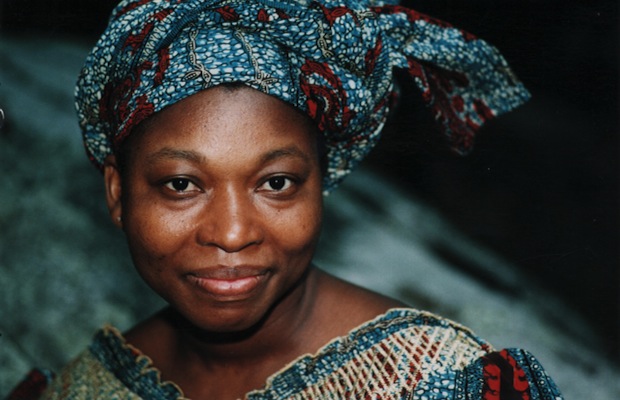Home Frank’s Blog Defining Who We Are Through Music
Defining Who We Are Through Music
Frank Fitzpatrick 07/05/2013

|
No time to read? Pick your language & press PLAY
Getting your Trinity Audio player ready...
|
At some point in our lives, we have all heard phrases like, “Find your true voice,” “Sing your own song,” or “Dance to the rhythm of your own drum.” There is also a good chance these words have come from people who care about us and who want to help us find our way in the world with a deep sense of personal wellbeing, confidence and happiness.
Could it be, though, that these musical metaphors have deeper truths within them? Maybe it is not only what we find in music that enriches our lives; rather what music helps us discover within ourselves. Can music, like a good teacher or a close friend, help us discover things about ourselves that we might not otherwise recognize? Does music actually help us form a vision of who we are as children and who we will become in the world?

According to Sobonfu Somé, of the West African country Burkina Faso, there is a tribe in Africa in which music lies at the very essence of an individual’s identity – both to him/herself and to the community around them [1]. When a woman there decides she wants to have a child, she goes off and meditates until she hears the song of the child she will conceive. She then teaches that song to the father-to-be and, together, they share the song as they make love. Once pregnant, they teach the song to their community to sing as the mother is giving birth, welcoming the child in to the world with its own song. Later in life, if the child ever goes astray, the community sings the song to help the child remember who he/she really is, as a guide to a deeper connection of inner or higher self. When a couple is married, they sing their songs and, finally, when it comes time for a member of the tribe to transition from this life, the village sings their song for them.
In addition to being a great story, this is the ultimate metaphor for the powerful impact music can have on helping us discover and create our own identity as we are growing up. Although the practices of Western society are not as formalized in guiding us through this process as the tribe in Africa, most of us can recall pieces of music that have helped us feel more connected in a disconnected and often unjust world. As youth, we often chose our circles of friends by the kind of music that most resonated with us and sometimes came to idolize – maybe even imitate – the artists who created that music.

Over the past couple years, the University of Glasgow and the Scottish Music and Health Network have been performing studies in order to bring a clearer understanding to just how influential music can be in helping children develop their sense of identity. Their research on music and identity has confirmed something to which most of us can already testify by simply reflecting on our own adolescent experience: the music we identify with during our early teens often becomes the music that stays with us throughout our life. This creates a strong nostalgia in later years, re-connecting us back to our sense of self and to the community of friends – new and old – who share those musical preferences.
Music can support and enrich the development of a positive self-identity as well as provide confidence, motivation and a sense of belonging. Music can enhance creative, social and emotional skills. Music can be both a sense of self-preservation and fundamental wellbeing [2], providing a source of support when youth feel stressed, troubled or lonely [3]. Adolescents even hold expectations about the values and characteristics of fans of certain kinds of musical styles, attributing a kind of label for themselves and others around musical preferences [4]. Participation in musical groups or performances can further contribute to building friendships, self-esteem and social skills.
I may not have been given a melody by my mother as I came into this world, but it didn’t take me long to find songs to call my own. From my earliest memories, I was either choosing the music of my older brothers to build a bond, or finding my own to show my independence. I still recall the deep impressions of songs like the Beatles’ “Let It Be”, Marvin Gaye’s “What’s Goin’ On”, Pink Floyd’s “Dark Side of the Moon” and the Temptations’ “Ball of Confusion” as I was struggling to make sense of my early teenage years. I can still revel in them and the almost visceral sense of connection when I hear them today.

I believe it is important that we give our children exposure to a wide range of music so they can build their own preferences and identities. A broader musical palette can open them up to a wider range of life experience and larger sphere of friendships and associations. Helping them to recognize how they can use, or even create, the music they come to love, to resonate more deeply with their own spirit and the world around them, provides them with a tremendously powerful tool for facing challenges in life, communicating their emotions and reconnecting when the world around them feels too overwhelming or disconnected.
View this article on Huffington Post.
References:
[1] Some, S. (1999) Welcoming Spirit Home: Ancient African Teachings to Celebrate Children and Community. New World Library.
[2] Hallam, S., & Creech, A. (Eds.) (2010) Music education in the 21st century in the United Kingdom: Achievements, analysis and aspirations. London: Institute of Education.
[3] Zillman, D. & Gan, S.L. (1997) Musical taste in adolescence. In: The social psychology of music, ed. D. J. Hargreaves & A. C. North, pp. 161-87. Oxford University Press.
[4] North, A.C. and Hargreaves, D.J. (1999) ‘Music and Adolescent Identity’, Music Education Research 1: 75-92.
I’m here to help YOU create a better world, inside and out.
Contact Me© 2025 Frank Fitzpatrick Website by AllHereIndia












